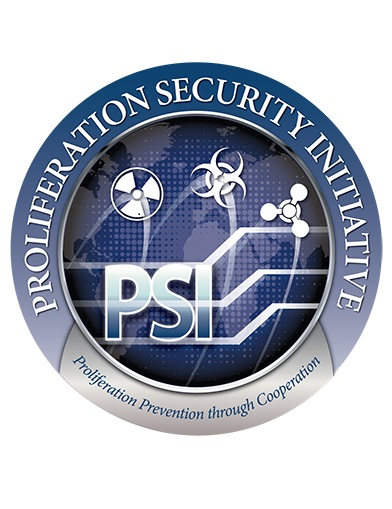As the US expanded its military efforts against terrorism in a wider sense and in a broader geographical context, it also prompted new initiatives with regard to interception operations. At this point, along with terrorists, weapons of mass destruction became a focal point in the maritime dimension. NATO’s Deputy Assistant Secretary-General for weapons of mass destruction policy notes in 2009:
‘Looking at the past, together with the severe implications of using CBRN materials and coupled with the motivation of certain terrorists groups such as Al Qaida, we must acknowledge that WMD are a real and likely threat’. In May 2003, US
President George Bush, having closed the major combat operations phase in Iraq and still in search of WMD, launched the Proliferation Security Initiative(PSI) aiming to counter and minimize the threat of WMD at sea. The PSI connects
the arms control efforts of proliferation of WMD with the terrorist threat. The So San incident, which occurred in December 2001 in the Arabian Sea, is always mentioned in this context as the example that underlined that the threat of WMD was real and the legal possibilities were limited. According to Davis, the PSI emerged from two major concerns. First, the terrorist attacks against the USS Cole in 2000 and the French Tanker Limburg in October 2002 had heightened the fear of more terrorist attacks in the maritime domain. Second, it was viewed that terrorist groups were trying to find weak spots in the international maritime traffic and transport systems to transport chemical, biological or nuclear weapons. The essence of PSI, as Klein mentions: ‘is its nature as a political and cooperative regime, which facilitates coordination between the States concerned and allows for the better flow of information and interaction at an operational level between the participants.’ The PSI is neither an organization nor a treaty, but an initiative based on the willingness of States to cooperate in the non-proliferation of WMD. It is based upon a set of four interdiction principles. These principles rely on already existing legal frameworks for the proliferation of WMD and focus on the interdiction
of chemical, biological and nuclear weapons, their delivery systems and related material. Furthermore, to strengthen the legal grounds for actual interception within the context of PSI, the US sought to conclude bilateral shipboarding agreements with other States which were to strengthen the PSI through the ability to board foreign-flagged vessels on the high seas. There is, however, hardly any public information on actual ‘PSI-interceptions’. The interception of the BBC China in 2003 and M/V Light in 2011 appear to be the two publicly known cases.
Apart from the US-led efforts, also the UNSC adopted SC Res. 1540 (2004) which also aims at proliferation of WMD. The resolution however lacks to provide an additional legal ground for maritime enforcement at sea.

